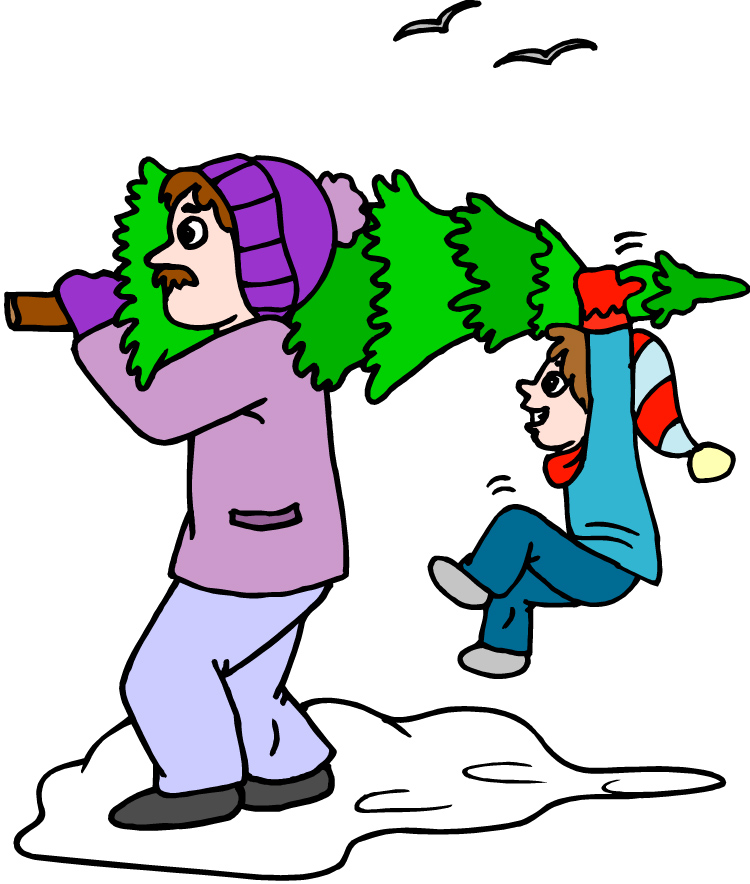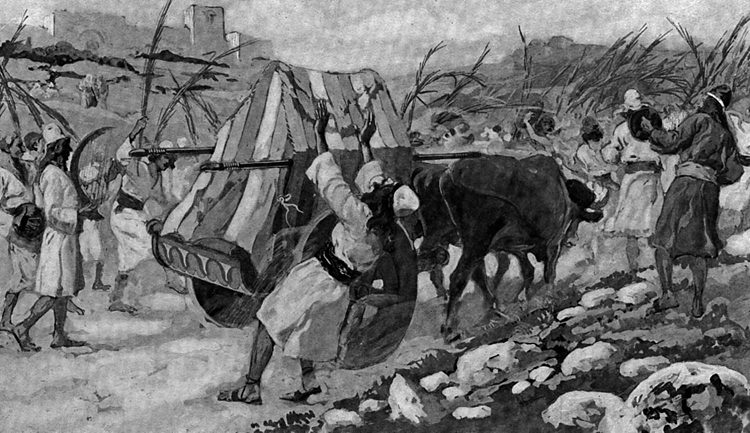
Once upon a time long, long ago, there was a Jewish man in the Bible named Uzza and a Christmas tree. Now wait just a moment, you are probably saying to yourself, something is wrong with this picture. What does an ancient Israelite man in the land of Israel have anything to do with a Christmas tree? Well, read on boys and girls, and I will tell you.
The Israelites, Elohim (God’s) chosen people, in their zeal at having the ark of the covenant (a symbol of the presence of YHVH Elohim) returned to Israel after it had been stolen by Israel’s enemies, the Philistines, they failed to inquire of YHVH as to how to properly transport the ark. Though well intentioned, the Israelites were misguided and they unwittingly repeated the sin of the Philistines by transporting it on an ox-drawn cart instead of the prescribed manner (1 Chron 13:1–13).
In times past and as recorded in their laws, YHVH Elohim had instructed the Israelites on exactly how to carry the ark—a gold covered wooden box that contained the sacred symbols of Israel’s special covenantal relationship with Elohim. You see, he had specifically instructed that only the Levitical priests could carry the ark, and this had to be done on their shoulders with wooden poles (Num 4:2–15). Anyone who failed to follow these explicit instructions would be cursed by Elohim.
Sadly, Uzza failed to read the instructions. Although he was well-intentioned, he was neither a Levite nor were his fellow Israelites who failed to transport the ark in the prescribed manner. The ark was illegally being carried on an oxcart. So when the oxcart began to tip and the ark became unsteady, Uzza reached out to steady it and illegally touched the sacred wooden box that symbolized YHVH’s presence in Israel. As a result, Uzza was struck dead (1 Chron 13:7–9). The sin of not properly transporting the ark in the proscribed manner led to more sin and eventually led to the death of a man, who thought he was doing a good deed.
So where is the Christmas tree in this story, you are probably now asking yourself? So glad you asked.
There is a lesson for us in this story about Uzza and it absolutely has to do with the Christmas tree that so many well-meaning Christian erect in their homes, churches and places of business each year in December to supposedly honor the birth of the Messiah—Jesus Christ.
YHVH has prescribed manners in which he is to be approached, ministered to, honored, worshipped or “touched”, if you will. We fool ourselves if we think that we can approach him in any manner we like, much less in the same manner as the ungodly heathens do. You see, the ignorant Philistines after suffering Elohim’s wrathful judgment for illegally stealing the ark of the covenant from the Israelites, returned the ark to Israel by placing the ark on an oxcart and sending it back where it had come from (1 Sam 5:1–12; 6:1–12). The Philistines were ignorant of the proper protocols for transporting the ark and did not know any better. The Israelites, on the other, possessed the laws of Elohim, which stipulated how he wanted the ark to be carried and by whom. So when the ark came back into Israel, they should have called for the priest to carry it properly. Instead, they adopted the pagan customs and transported the ark that represented Elohim’s presence in the pagan manner. Can you now begin to see where I am going with this story and what it has to do with a Christmas tree?

If we dare to approach our Creator in a non-prescribed (or illegal) manner, especially when we claim to be Bible followers, though Elohim is gracious, we may also suffer his angry judgments because we have failed to respect or fear his presence properly and follow his commandments. Often, we, just like the Israelites, adopt pagan practices in our worship of him. We fail to consult the Word of Elohim as to how he desires to be approached or worshipped. Instead, we make up our own customs and fail to follow the law so Elohium. For example, we fabricate holidays (like Christmas and Easter) and assemble on days that he has not sanctified (e.g., Sunday and Christian holidays), and we fail to meet with him on the days that he has sanctified (the Sabbath and his biblical feasts), we eat abominable and unclean meats that he has forbidden (e.g., pork and shellfish), and we erect Christmas trees (a pagan symbol representing the male sex organ) in our homes and church sanctuaries—a practice he refers to as heathen and instructs his people not to do (Jer 10:1–5).
Continue reading

